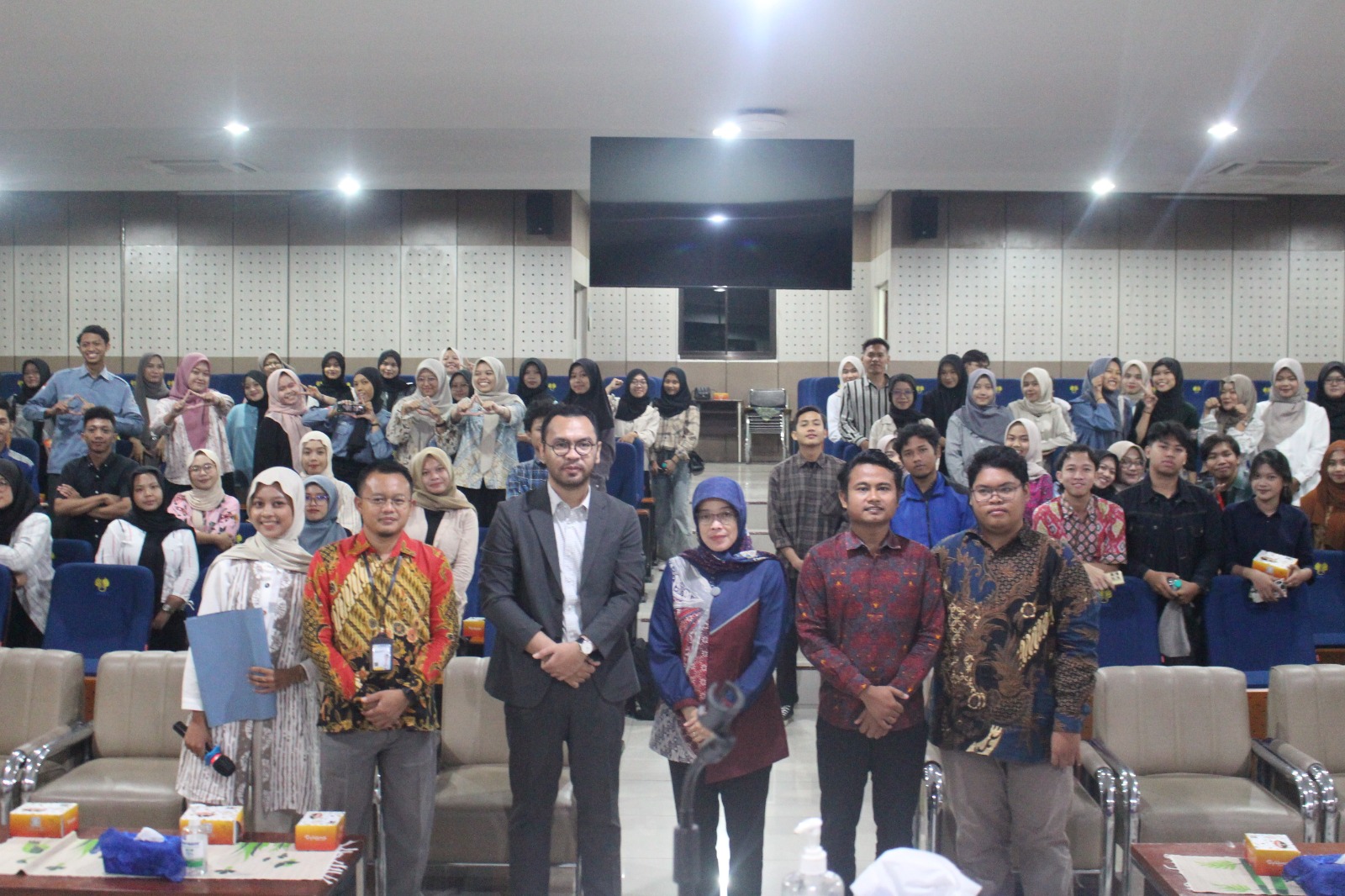The curriculum in school learning has undergone many changes up to the present day. These changes occur as adjustments to several dynamic factors. Adaptation is necessary to improve the quality of education, aimed at producing better future leaders of the nation. Through the Merdeka Curriculum Implementation Workshop, one of the solutions is offered to prospective educators to better understand the educational sphere, particularly regarding the curriculum.
Held on Thursday, August 15th, the workshop featured Chandra Adi Prabowo, S.Pd., M.Pd. as the speaker. The event, which took place in the Moh. Hatta Hall of the L1 Building, FEB UNNES, was attended by several of the FEB academic community, especially from the Economic Education, Accounting Education, and Office Administration Education study programs.
Before the presentation of the material, the event was opened with remarks by the Vice Dean for Business, Research, and Cooperation of FEB UNNES, Dorojatun Prihandono S.E., M.M., Ph.D., and the Head of the Integrated Laboratory of FEB UNNES, Dr. Bestari Dwi Handayani S.E., M.Si. In their remarks, they emphasized that this workshop, which carried the theme of the Merdeka Curriculum, is essential for students of Economic Education, Accounting Education, and Office Administration Education to understand. This workshop will later serve as a provision for FEB students, especially for the academic community present, who are about to embark on the PLP (Introduction to School Environment) activities in the upcoming 7th semester.
The speaker began the session with two important statements about teachers and the curriculum. He emphasized that being a teacher must be relevant to the students, while the curriculum must be relevant to the conditions or situations currently being faced, or those that may arise in the future. He also recounted how the Merdeka Curriculum emerged as a result of the pandemic and was then established as the national curriculum in today’s era of education.
The Merdeka Curriculum has produced positive outcomes, which is why it has been adopted as the national curriculum. It is deemed effective because student achievements have improved, and the Merdeka Curriculum continues to be refined, adapting to the current situations and conditions. The main goal of the Merdeka Curriculum is to shape six key characteristics of students contained in the Pancasila Student Profile. These six characteristics include being faithful and devout, globally minded, cooperative, creative, critical thinkers, and independent. In addition to explaining the importance of the Merdeka Curriculum, the speaker also discussed what prospective educators can do in designing learning plans and the components that need to be considered when designing projects for students in schools. At the end of the event, a discussion and question-and-answer session was held to strengthen the academic community’s understanding of the curriculum and school learning. Through the materials and discussion sessions, it is hoped that students, who will serve as future educators, will be able to apply these concepts in schools during the PLP (Introduction to School Environment) activities.

